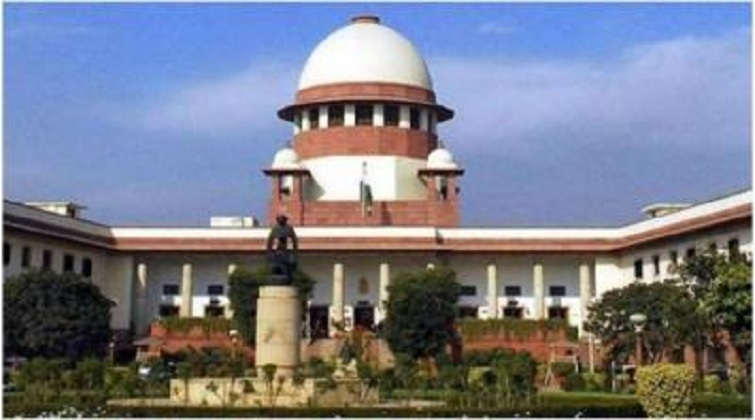NATIONAL SECURITY CONCERNS
10 Apr 2023 05:59:28

By ADV. R. S. AGRAWAL :
The SC has pointed out that the court in such cases is still required to deliver a reasoned order on the principles that it had considered and applied, even if the material that is sought not to be disclosed is redacted from the reasoned order.

IN A very memorable and highly important judgement, which will have its footprints on the events in the future for long times to come and has been delivered on April 5, 2023, in the case – Madhyamam Broadcasting Ltd. (MBL) v. Union of India & Others , Chief Justice of India Dr Dhananjaya Y Chandrachud and Justice Hima Kohli, at the Supreme Court, have declared that “A blanket immunity from disclosure of all investigative reports cannot be granted”, although, confidentiality and national security are legitimate aims for the purpose of limiting procedural guarantees, the State has been unable to prove that these considerations arise in the present factual scenario. The Union Ministry of Information and Broadcasting (MIB) revoked the permission which it had granted to the appellant to uplink and downlink a news and current affairs television channel called“Media One”.The appellants comprising MBL, the trade union of working journalists and the Editor, SeniorWeb Designer and Senior Cameraman of Planetcast Media Services Ltd. initiated proceedings under Article 226 of the Constitution before the High Court of Kerala for challenging the action of the first respondent. By a judgement on February 8, 2022, a Single Judge dismissed the petitions. The writ appeal was dismissed by the HC’s division bench on March 2, 2022, relied on the material, which was disclosed solely to the Court in a sealed cover by the respondent-2, Union Ministry of Home Affairs (MHA). The appellants instituted proceedings under Article 136 of the Constitution to challenge the correctness of the judgement of the HC’s division bench.
After long hearing, the Supreme Court allowed the appeals and set aside the order of the Union Ministry of Information & Broadcasting of January 31, 2022 and the High Court’s judgement of March 2, 2022 with the findings out of which security clearance is one of the conditions required to be fulfilled for renewal of permission under uplinking and downlinking guidelines. The Supreme Court has allowed the challenge to the impugned order of the MIB and the judgement of the HC, on procedural grounds stating that (a) the principles of natural justice were constitutionalised by the SC’s judgement in Maneka Gandhi’s case. The effect is that the courts have recognised that there is an inherent value in securing compliance with the principles of natural justice independent of the outcome of the case. Actions which violate procedural guarantees can be struck down even if non-compliance does not prejudice the outcome of the case. The core of the principles of natural justice breathes reasonableness into procedure.The burden is on the claimant to prove that procedure followed infringes upon the core of procedural guarantees; (b) The appellants have proved that MBL’s right to a fair hearing has been infringed by the unreasoned order of the MIB of January 31, 2022, and the non-disclosure of relevant material to the appellants, and its disclosure solely to the court.
The burden then shifts on the respondents to prove that the procedure that was followed was reasonable and in compliance with the requirements of Article 14 and in compliance with the requirements of Articles 14 and 21 of the Constitution. The standard of proportionality has been used to test the reasonableness of the procedure; (c) The judgements of the Supreme Court in the cases- Ex-Armymen’s Protection Services and Digi Cable Network, it has been held that the principles of natural justice may be excluded when on the facts of the case national security concerns overweigh the duty of fairness; (e)The validity of the claim of involvement of national security considerations must be assessed on the test of (i) whether there is material to conclude that the non-disclosure of information is in the interest of national security; and (ii) whether a reasonable prudent person would draw the same inference from the material on record; (f ) Even assuming that non-disclosure is in the interest of confidentiality and national security, the means adopted by the respondents do not satisfy the other prongs of the proportionality standard. The non-disclosure of a summary of the reasons for the denial of security clearance to MBL, which constitutes the core irreducible minimum of procedural guarantees, does not satisfy the suitability prong; (g)The courts assess the validity of public interest immunity claims, which address the same harms as the sealed cover procedure, based on the structured proportionality standard.
The power of courts to secure material in a sealed cover when contradistinguished with the scope of assessment of public interest immunity claims is rather unguided and ad-hoc. The standard of review that is used by the courts in public interest immunity claims and the lack of such a standard in sealed cover proceedings to protect procedural safeguards indicates that public interestimmunity claims constitute less restrictive means. Additionally, while publicinterest immunity claims conceivablyimpact the principles of natural justice, sealed cover proceedings infringe theprinciples of natural justice and openjustice; (h)The courts could take thecourse of redacting confidential portions of the document and providing asummary of the contents of the document to fairly exclude materials after asuccessful public interest immunityclaim; and (iii) The challenge to theorder of MIB is allowed on substantivegrounds. The non-renewal of permission to operate a media channel is arestriction on the freedom of the Presswhich can be only reasonably restricted on the grounds stipulated in Article19(2) of the Constitution. The reasonsfor denying a security clearance to MBL, that is, its anti-establishment stanceand the alleged link of shareholders toJEI-Hare not legitimate purposes for therestriction of the right of freedom of speech protected under Article 19(1)(a)of the Constitution. In any event, therewas no material to demonstrate any linkof the shareholders, as was alleged. While the SC has concluded that a public interest immunity claim is a lessrestrictive means, the dilution of procedural guarantees while hearing theclaim cannot be ignored by the court. The court has a duty to consider factorssuch as the relevance of the material tothe case of the applicant while undertaking the proportionality standard totest the public interest immunity claim.
The factor of procedural guarantees isequally important and it cannot beturned into a dead letter. It is the responsibility of the Supreme Court to balancethe two considerations, when those arein conflict. A power in the court toappoint an amicus curiae will balanceconcerns of confidentiality with theneed to preserve public confidence inthe objectivity of the justice deliveryprocess. The SC has pointed out that the court in such cases is still required to delivera reasoned order on the principles thatit had considered and applied, even if the material that is sought not to be disclosed is redacted from the reasonedorder. The SC has allowed the civil appeals and directed the MIB to issuerenewal permissions in terms of thisjudgement within four weeks and all other authorities shall co-operate in issuing necessary approvals and till then, the court’s interim order shall continue to operate.
